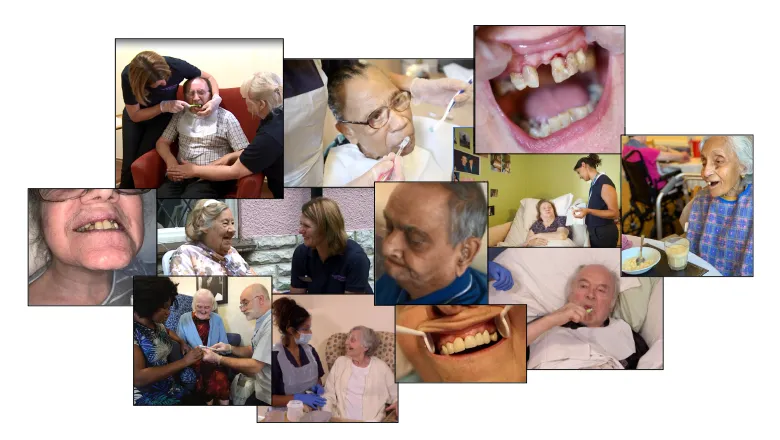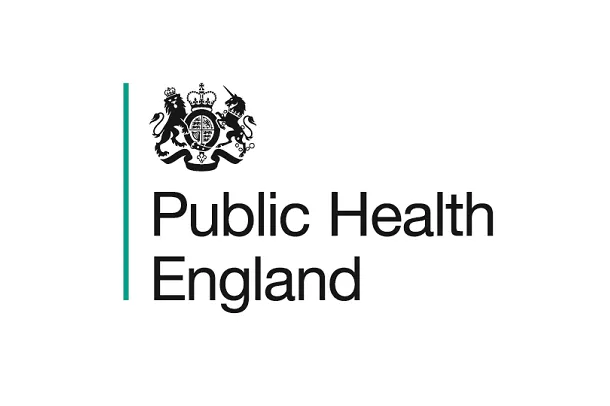Fluoride Interventions to prevent dental decay in care home residents (FInCH): A cluster randomised feasibility study

Aims
Summary
The population is ageing with increasing numbers of older people globally in supportive care. In parallel, improvements in oral health mean a shift from an older population, which was largely edentulous to one, which is dentate. The changing oral health profile poses a particular challenge in care homes with care home residents being at higher risk of dental caries. There is a strong body of evidence for the use of dose dependent fluoride in the prevention of dental caries in children but no UK studies comparing fluoride interventions in care homes. Care homes are complex environments, with methodological issues involved in conducting research. Prior to considering a full-scale dental trial in care homes, feasibility parameters needed to be explored. It was therefore the purpose of the FInCH study to establish the feasibility, acceptability and compliance of delivering fluoride interventions for the prevention of dental caries in care homes for older people to inform the potential for a future full-scale trial.
Aim of study
The aim of this study was to establish the feasibility, acceptability and compliance of delivering fluoride interventions for the prevention of dental caries in care homes for older people.
Trials Design
This trial was a single centre, multi-site randomised controlled assessor blind parallel group (three groups) trial, with the primary objective of establishing the feasibility, practicability and compliance of fluoride interventions to prevent dental decay in care homes. Secondary and tertiary objectives were to explore the acceptability of the interventions from resident, care home and dental services perspectives, and to undertake a sample size calculation to consider the feasibility of a future full scale efficacy trial.
Summary of Findings
Six care homes were recruited and randomised, of which five completed the study, with one closing during the COVID-19 pandemic. Three residential and three nursing homes, ranging from 54-84 beds were recruited to the study.
A total of 392 (67%) of the resident participants agreed to be assessed for eligibility, of which 202 (77%) met the inclusion criteria. One hundred and eighteen (58%) eligible residents consented to take part, of which 113 were allocated to intervention, five having passed away. The mean age of participants randomised was 85.9 years (range 65-99 years), of whom 68% (n=77) were female, and 58% current non-smokers (n=65). Three quarters (737%; n=82) of participants had high activities of daily care needs. Of those recruited, 59% (n=69) lacked capacity; thus, consent to participate was given under their legal power of attorney. A total of 34 residents were allocated to the control arm, 23 to Arm one (FTP) and 56 to Arm two (FV).
Fifty-nine (50%) residents completed the trial, with mortality being the primary reason for loss to follow up. Of those recruited, 40 residents were lost to COVID follow-up between baseline examination and follow up 1. There was a higher proportion of participant-loss in the residential homes (n=36; 60%) than in the nursing homes (n=23; 40%). However, there was balance in the proportion of losses across the arms, over the study period from recruitment through to the end of the intervention and final follow- up, with 49% (n=17) of participants lost in the control arm, 50% (n=13) in Arm one and 51% (n=29) lost in Arm two.
Eighty three percent of participants permitted complete examinations at baseline, and this fell slightly to 80% at 12 months. One in five (20%) participants were fully dentate. The oral cleanliness of participants was poor, with a mean plaque score of six index teeth at baseline of 1.80 across the residential homes and 2.01 across the nursing homes. One third of the participants had experienced dental caries at baseline, with 27% (n=31) having active caries and 18% (n=20) having arrested caries at baseline.
The research study was acceptable to care home teams and dental teams alike as baseline engagement of homes was 100%. Care home staff engagement varied across the homes, with the leadership and culture of the setting having significant influence and impact on staff willingness to engage with training and recruitment. Care teams reported a need for dental research and valued being involved in the study. However, challenges of dental access, cost of care and the complexities of resident compliance to dental interventions were reported by both care and dental teams.
Impact
This feasibility study confirms the practicability and acceptability of oral health programmes in general and fluoride interventions to prevent dental decay in care homes; however, it raised several methodological issues which need to be addressed in a full trial. These include the challenges around set up and governance structures when undertaking clinical trials in care homes, the importance of tailoring staff and resident engagement specific to each care home context and variable resident compliance resulting in missing data. It has also raised issues in relation to dental care provision which need to be addressed as a matter of urgency with health policy and action.
Stay Smiling e-learning programme
Findings from the interviews undertaken with care home teams highlighted the challenges carers face in delivering mouthcare and a lack of widely available suitable oral health training. In response, a joint working group was set up, led by Dr Rakhee Patel in partnership with care home teams, academics, public health and NHS clinical experts, with the aspiration to coproduce evidence-informed, easy-to-access, free e-learning mouthcare training for carers and care teams. The programme is based around a series of videos and has been designed to empower and support care teams in delivering mouthcare, so that care home residents can Stay Smiling for longer.
Click here to be directed to the Stay Smiling e-learning programme (https://www.acffglobal.org/courses/stay-smiling/)
To request the video files or any other enquiries please email stay.smiling@kcl.ac.uk
Our Partners

NHS England and NHS Improvement (NHSE/I)

Public Health England

Whittington NHS Trust

Barnet Local Authority

Principal Investigator
Investigators
Affiliations
Project websites
Funding
Funding Body: NIHR Doctoral Research Fellowship
Amount: £488,238.00
Period: January 2016 - November 2022
Contact us
Rakhee Patel
Research Team:
Dr Claire Robertson (Consultant in Dental Public Health, Public Health England (retired))
Dr Iftekar Khan (Professor in Medical Statistics)
Dr Mark Pennington (Senior Lecturer in Health Economics)
Dr Andrew Read (Clinical Director, Whittington Community Dental Services (retired))



